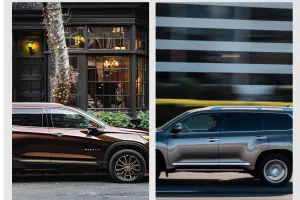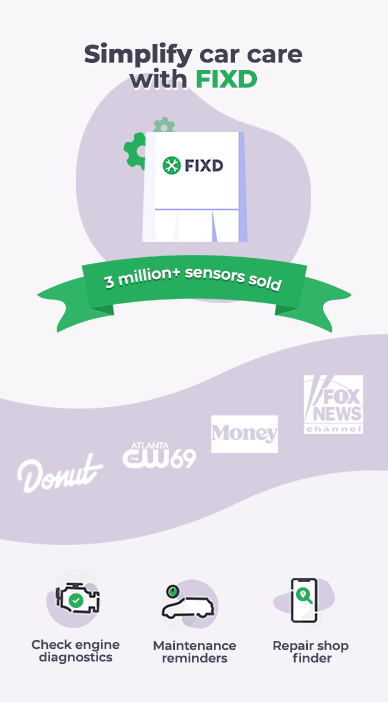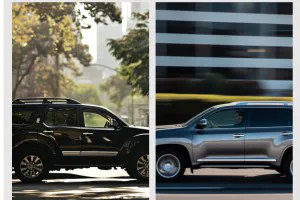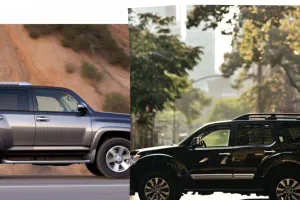By investing in a car warranty, you can save money on expensive repairs for your vehicle. While the terms of these contracts vary significantly, they typically cover the same kinds of service costs. Read on to discover the answer to “Is labor covered under a car warranty?” and find helpful responses to a variety of other frequently asked questions about the topic.
What Is a Car Warranty?
A car warranty is a contract or agreement between a vehicle manufacturer and the buyer of a vehicle. In it, the manufacturer promises to repair or replace any broken parts of the vehicle if the cause of the breakage was an issue in the manufacturer’s design or installation. Warranty agreements end after a certain number of years or after a vehicle reaches a particular number of miles.
Warranties act as a kind of guarantee from the manufacturer that your new vehicle can remain in proper working condition for the foreseeable future. By investing in a warranty, you can avoid having to pay hefty out-of-pocket costs for vehicle repairs. As the terms of warranties can vary greatly, it’s beneficial to consider your options carefully before purchasing a car warranty.
Is Labor Covered Under a Car Warranty?
The answer to the question “Is labor covered under a car warranty?” is yes. Along with covering the repair or replacement of defective parts, car warranties also pay for the labor it takes to conduct these services. Here’s an explanation of what car warranties usually do and don’t cover.
What Car Warranties Cover
Car warranties cover unexpected costs associated with the vehicle, such as:
- Malfunctions: Car warranties cover components that stop working unexpectedly. For example, a powertrain warranty pays for repair if your transmission fails.
- Defective parts: Car warranties cover imperfect or faulty vehicle components. For example, a bumper-to-bumper warranty pays for the replacement of a broken AC system, while a powertrain warranty would not.
- Labor: Car warranties cover the costs of both parts and the labor to repair or replace parts.
What Car Warranties Don’t Cover
Car warranties don’t cover costs due to expected wear and tear, or owner error, such as:
- General wear and tear: Over months and years, any vehicle experiences general wear and tear. For example, due to their connection with the road, tires eventually wear down and lose their tread depth.
- Routine maintenance: Getting routine maintenance for your car is essential to taking care of it. For example, frequent oil changes keep your engine healthy, and tire rotations increase the lifespan of your tires.
- Damage you cause: Warranties don’t cover damage you have caused due to accidents. They also don’t cover damage from activities such as racing or off-roading.
- Damage unrelated to design: Warranties don’t cover damage due to vandalism, theft, weather, natural disasters, or similar factors. These causes are unrelated to the manufacturers’ design of the vehicle.
- Damage due to aftermarket parts: If you replace your vehicle’s parts with aftermarket parts, you may risk voiding your warranty. This is because these parts may not work properly with other vehicle components.
What Are the Types of Car Warranties?
Here are the two primary categories of car warranties:
Manufacturer Warranties
In manufacturer warranties, the car producer agrees to pay for and fix parts that are defective due to manufacturer mistakes or poor workmanship. New vehicles typically come with a manufacturer’s warranty, but these contracts often end after three years or 36,000 miles. Some manufacturers offer longer warranties, but this is the average.
There are a variety of types of manufacturer warranties, including:
- Powertrain warranty: This type of contract covers issues with a vehicle’s powertrain or propulsion system. These may involve damage to essential mechanical parts like the transmission, engine, and driveshaft.
- Bumper-to-bumper warranty: Also called a comprehensive warranty, this kind of guarantee provides comprehensive coverage for most parts of the vehicle, including the powertrain. It typically doesn’t cover components that experience constant wear and tear like tires, windows, and upholstery.
- Restraint systems warranty: This kind of plan covers damage to seat belts, airbags, and other key restraint systems in your vehicle.
Extended Warranties
If you want to continue an agreement after the manufacturer’s warranty expires, you can purchase an extended warranty. This type of contract covers the same kinds of issues as a manufacturer warranty, like defective or malfunctioning parts. However, it often includes a deductible like in an insurance plan. Here are two common types of extended warranties:
- Manufacturer extended warranty: This kind of agreement is issued by the brand-name provider of the vehicle.
- Third-party warranty: This kind of warranty is issued by a car warranty firm or another third party.
How Much Do Car Warranties Cost?
The cost of a car warranty can depend on a diversity of factors, including the make, model, and age of the car it’s covering. The cost of your warranty also depends on the provider and level of coverage you choose. When buying an extended warranty, you may be responsible for paying an up-front fee or smaller monthly payments. You also pay a deductible before the warranty covers repairs. Since the costs of warranties vary so widely, there is no average price for these contracts. Your agreement may cost anywhere from hundreds to thousands of dollars per year.
Should You Get a Car Warranty?
When buying a new car, you typically get an initial car warranty automatically with your purchase. However, when this contract expires, you can decide whether to get additional coverage by investing in an extended warranty or service contract. When you buy an extended warranty from a reputable company, you can protect yourself from the expense of costly, unforeseen repairs. This can be especially important if you own a luxury car that could be expensive to repair.
If you’re considering the purchase of a warranty, it’s a good idea to compare the cost of the contract with the cost of potential repairs to your vehicle. For example, you could compare the cost of replacing the engine with the price of investing in a powertrain warranty. Assess your own finances and needs closely and work with a trusted provider to make a strategic, smart decision. You may choose to maintain an emergency repair fund rather than buy a warranty.

At FIXD, our mission is to make car ownership as simple, easy, and affordable as possible. Our research team utilizes the latest automotive data and insights to create tools and resources that help drivers get peace of mind and save money over the life of their car.














